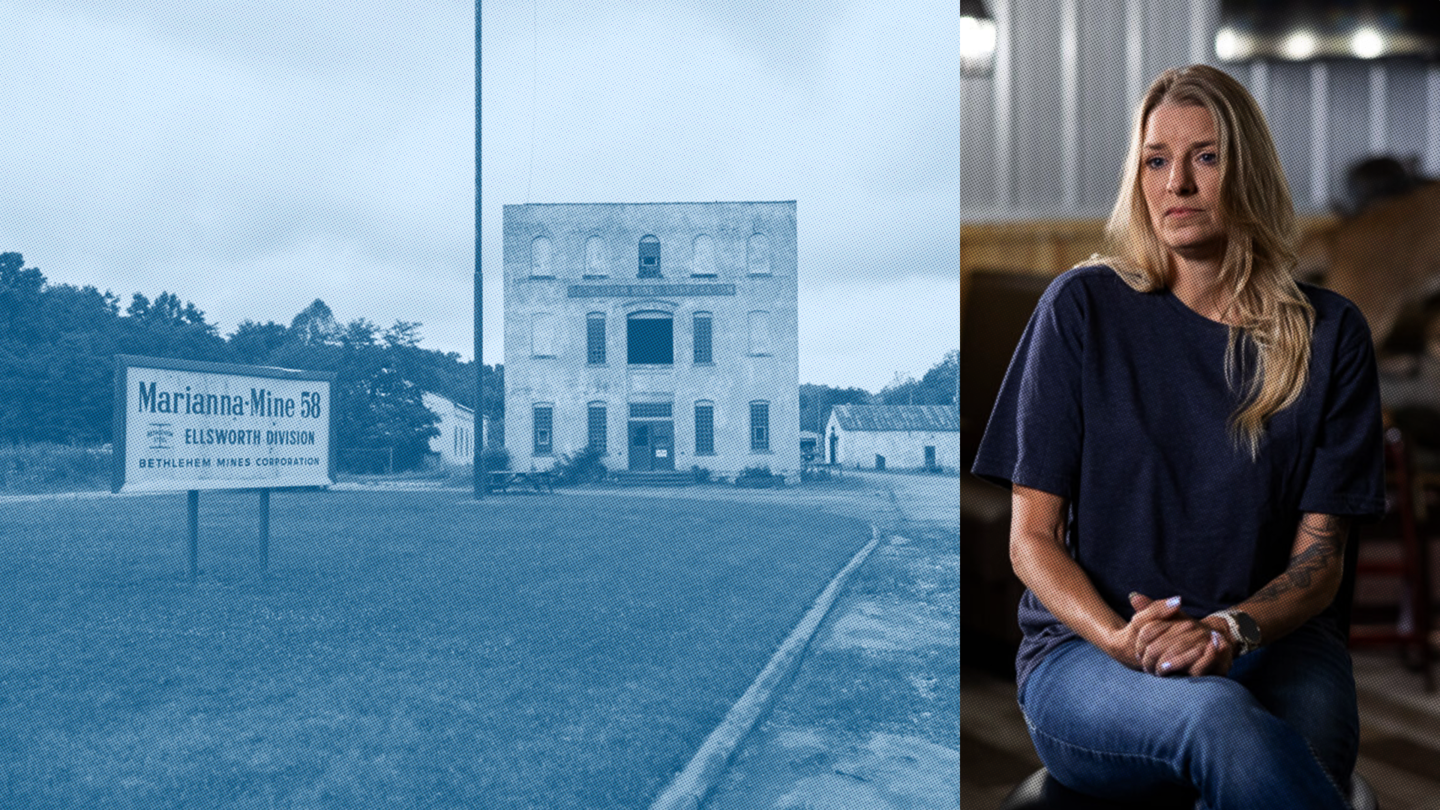Innovation and entrepreneurship — for generations these have been trademarks of American prosperity. Yet, the challenges plaguing our country in recent decades — things like higher housing costs, slow wage growth, expensive healthcare hindered by a highly regulated healthcare system, and partisan politics — seem to be interfering with the ability for politicians and citizens to work in government, businesses, and communities to enact solutions for Americans.
With a 24-hour news cycle where outrageous and often negative stories seem to go viral more than the good news of the day, it’s easy to believe the notion that America is headed in the wrong direction. It could be, if attention isn’t focused on creating innovative and effective solutions aimed at increasing prosperity in America.
The shortages Americans have experienced the past few years — whether it be not enough personal protective equipment (PPE), a national inability to establish efficient and effective COVID testing, or a lack of toilet paper and other essentials in the grocery store — have exposed the need for a new paradigm for solving today’s challenges. It’s called the Abundance Agenda and that is defined by an approach to solutions that believes creating more — more housing, more jobs, more options in healthcare models, and more collaboration over conflict — will lead to a prosperous country.
To understand what this looks like in theory and in practice, Stand Together Trust spoke with James Pethokoukis, the Dewitt Wallace Fellow at the American Enterprise Institute and a grantee of Stand Together Trust. James is a columnist and an economic policy analyst, a writer and editor at the AEI blog and host of the AEI Political Economy podcast. His Substack — Faster, Please! — is another outlet where he writes and podcasts regularly about the Abundance Agenda. He is also an official contributor to CNBC.
Stand Together Trust: How would you define the Abundance Agenda and its origins?
Pethokoukis: A lot of this thinking on abundance — at least for some people — came out of the pandemic. Many of us were shocked that we didn’t have some sort of mass depot somewhere that had a surplus of masks, ventilators, and other protective equipment ready to go for a pandemic that everyone knew would be coming. There were all these studies about a looming pandemic and people had been talking about this possibility for years, especially with some of the Bird Flu pandemics in the past.
However, we found out that we didn’t have this massive depot somewhere with all these machines, gowns, and masks ready to go. So, people started asking, “Why?”
Then, some folks started looking around and noticing there are other things we don’t have an abundance of that should be obvious. We don’t seem to have an abundance of clean energy — we should have more of that. We don’t seem to have an abundance of immigrants — something pretty darn important for the U.S. economy. We don’t have an abundance of housing in our high-productivity cities — we should probably have more of that. We don’t seem to have an abundance of ability to make microchips in this country — that can be worrisome, too.
Yet, when people wanted to build more clean-energy nuclear plants, solar fields, or a transmission line, they started to realize, “Gee, it’s not that easy.” There are permitting problems at all levels of government. Even if we decided we wanted to build these things, it’s very hard.
There are many folks — especially on the right — who have been talking about this for a long, long time. But now folks on the left, especially people who supported President Biden and his energy agenda, have also started to realize if they want to accomplish it on budget and in time, there are all kinds of permitting rules slowing the process down. So, they started becoming more attracted to this notion that we just don’t seem to have enough of the things we really need — whether it’s physical infrastructure, not enough slots at top colleges, or not enough smart and hardworking people coming to this country.
Are there countries or U.S. states that have successfully implemented an abundance agenda? What does it look like?
There’s no country that is fantastic at all of this, and I’m also very cautious of using other countries as examples because they are all different. They’re all their own thing and they all have their own oddities. But you can certainly see where other countries are implementing bits of the abundance agenda.
Take, for example, Canada. Canada has been super accepting of high-skill immigrants. They have a point system that tells immigrants which skills Canada needs. In this country, we have people saying that we have too many immigrants — not just illegal immigrants, not just so-called “low-skill” immigrants — now people are worried we can’t even accept high-skill immigrants. Yet the country right next to us seems to think accepting immigrants is a pretty good idea. Any immigrant who can’t get into America, maybe they can go to Toronto. This is an example of a country not that differentfrom us that seems to have a very different view of immigration than we do.
Let’s look at housing and density in a high-productivity city. Tokyo is a pretty big city, but they don’t seem to have the same sort of price escalation that we seem to have in some of our key cities, like San Francisco and New York, among others. They are applying very simple, basic Econ 101 supply and demand. They make it easier to get a permit to build new housing. It can be done. Sure, Japan is a little more different from us, but they’re another advanced, rich economy, and they can do it.
Some people might point to China. We don’t have to be like China — they’re a very different system from ours. You can point, however, to other liberal democracies, rich countries, that seem to be able to make at least parts of this agenda happen.
I don’t think we don’t know how to do it. I think in many cases it’s a matter of will — like so many things. The current economy is far from the best possible. If we decide as a country that we want more progress and prosperity, that it’s a national priority, then we can turn that aspiration into economic reality.
Sign up for the Stand Together newsletter and get stories, ideas, and advice from changemakers to help you tackle America’s biggest problems.
What could the abundance agenda look like here in the United States? What are the biggest ideas and policies that an effective abundance agenda would need to incorporate and what role do local, state, and federal policymakers need to play?
We could start by making it easier to move to and live in high-productivity cities. These are cities with a lot of startups. People start these companies with big dreams, because they want to be the next Microsoft or Google. Traditionally, people move to where the jobs are. If the housing in these cities is so unaffordable a person can’t live there, or any gains they might make in income are eaten up by housing costs, that’s bad for economic growth and that’s bad for reducing inequality.
Of course, you’re not going to be able to force people to move, but you want to remove the economic barriers to going where they view there is better prosperity. San Francisco clearly should be bigger. New York could be physically bigger — they could be building out into the harbor. So, I think creating the space for these cities to have more people, increasing the density, that’s a really, really obvious place to start. We don’t have to go build new cities; we already have these cities. We just need more people going to these cities and exchanging ideas.
There is a lot of economic theory that when you have a lot of highly skilled people all in one area, they make each other more productive.
Also, it’s hard to have this kind of conversation and not talk about immigration. Not every country has the ability to attract talented people — whether it be a talent like computer skills or a talent like ambition — and have them be woven into our national fabric. We can do that.
One of my favorite quotes from Elon Musk is, “If you want to do something great with your life, there’s no better place to go than the United States of America.” And woe be to us and the world when that is not true.
The whole world is going to be suffering a demographic change in the coming years. We’re going to see stagnant and falling populations. One thing we can do, which is going to be a huge advantage, because no other country can really do it like we can, is bring more people here. If the 21st century is also going to be the American Century, that is going to be one reason why: because we can continue bringing talented people, broadly speaking, to this country.
Lastly, looking across policies, when we pass a tax increase or tax cut, when we decide to spend more on one program or cut money for a different program, invest here, not there. We should be thinking, “will this make us more innovative? Will it produce an abundance of innovation?” It doesn’t have to be the only thing we think about, but sometimes I feel that is not even part of the conversation. If we pass a new federal regulation, will it hurt our ability to build in the real world? Will it make things harder for entrepreneurs?
I think the idea of creating conditions for abundance and innovation always needs to have a seat at the table in policy discussions at every level of government. Because if there’s one thing we need to talk about in the abundance agenda, it’s the abundance of big ideas — we always need an abundance of those. We can’t have too many.
You’ve written recently that “a vibrant technology sector” and immigration growth would expand the economy. Can you tell us more?
The United States exists at what we call the technological frontier. The way the U.S. gets richer is by continuing to do new things. We can’t take all the inventions which are already out there and put them to use, because we’re already using them. We’re not playing catch up. You look at high growth rates in places like China — that’s because China is using existing technology and spreading it throughout their economy. But it’s already spread throughout our economy. We need to create new inventions and spread them throughout the economy.
Technological progress is what will drive living standards: It drives national security, it makes us resilient to problems, and it helps us solve big problems. I can’t stress that too much. We’ve gone through a half-century where we have not grown as fast as we reasonably could have.
There is still some debate about the slowdown in economic growth that started in the 1970s. People are still coming up with new theories. Some of those reasons are macroeconomic that are beyond our control — such as big inventions during the Industrial Revolution and the impact on productivity growth had been made by the early 1970s.
I have no doubt, however, that our decisions matter. We passed tons of great regulations in the early 1970s with great intentions to help the environment, but they might have had a bigger impact on growth than we anticipated. Cities passed zoning restrictions — sometimes for very bad reasons, others just wanted to preserve the character of the area. I don’t think anyone thought, “this is going to depress national GDP,” which it has. They didn’t think about it because things had been so good. They thought you couldn’t screw up the American economy.
Richard Nixon famously said, “It would take a genius to screw up the American economy.” Well, it didn’t take a genius; it just took lots of politicians making lots of shortsighted decisions — one after the other, decade after decade. Now we’re at this point where we haven’t as a country run the way we could for decades. Now we wonder why we don’t have nuclear reactors coast to coast that might give us abundant clean energy, and no one would even be talking about global warming. Why are we only now talking about having the kind of space economy that they were talking about having in the 1960s? We could already have that. Why are they only now saying, “maybe we could have so many electric cars by 2030”? We could already be electrified. All these things we could have, and we don’t. And I think our own decisions played a role in that.
The abundance agenda is being discussed by people from across the ideological spectrum — liberals, conservatives, and libertarians — why is this?
I really think if there is going to be a silver lining to the pandemic, it’s that we saw what happens when we don’t have abundances — whether it’s narrowly on things related to the pandemic such as personal protective equipment, or the fact that we have these shortages in the country.
The big, broad lesson is that we live in a very wealthy country and we’re not used to shortages. There are some shortages happening regularly that we just don’t see. For example, we don’t think about the shortage in nuclear energy because we don’t see it. It’s not in our everyday lives. Generally, we flip on the light and the light goes on. But we do see shortages on the shelf. That’s very immediate.
However, I think the pandemic raised the issue, are we doing everything we can to have abundance in the U.S.?
Broadly speaking — whether it’s having an abundant number of immigrants, abundant housing, abundant PPE, or an abundant supply of microprocessors — it became very clear to people that we could be doing more.
The exact solutions are going to be different. There may be some who favor more government intervention than I’m comfortable with. Yet, I think to be at this place where you have a lot of people from various ideologies thinking “more energy is good” or “more immigrants is good,” that is a great first step.
Tell us about your Substack Faster, Please!. What can a reader expect from your writing there?
You’re not going to hear a “woe is me” story. What you’re going to hear about are solutions. You’ll read about the latest technological innovations; what public policy we can pursue to enable those innovations and get more innovations. We talk about economic history, public policy, and the culture. Some of the things I’m talking about are going to be hard. People need to work hard, we have to invest, and it’s going to cost money. But what are we working towards? People need to be inspired.
You can follow James Pethokoukis’ work at https://fasterplease.substack.com/ and at AEI’s website.
This story first appeared at Stand Together Trust. To learn more about Stand Together’s work on economic progress, go here.

A coalition of scholars and policymakers are working on long-term economic solutions — together.

With the help of Americans for Prosperity, Christi Berrong-Barber learned her personal story has the power to make lasting change.

In Pennsylvania, two mining towns are trying to recover from the economic turmoil created by Washington’s overregulation.

Less restrictive licensing gives Americans the freedom they deserve to pursue meaningful and successful work.
